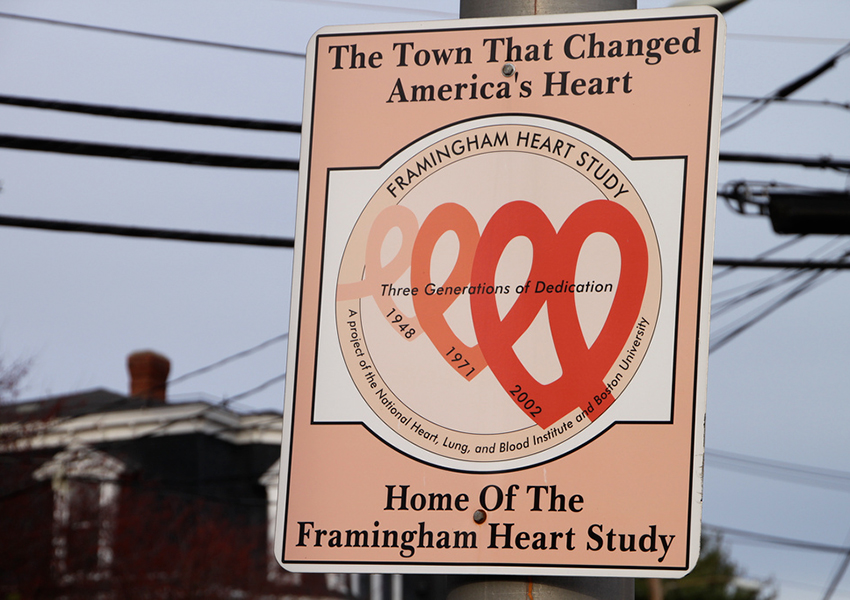Framingham Heart Study Celebrates its 65th Anniversary

Framingham Heart Study Photo Uploaded by mgstanton on Flickr
When President Franklin D. Roosevelt died of a stroke in 1945, it put cardiovascular diseases like heart failure and hypertension on the front page. A few years later, the federal government launched an unprecedented study to determine why so many Americans were dying from heart disease, and they chose, according to WBUR, the “typical American town” of Framingham, Mass.” Since it began in 1948, the Framingham Heart Study has collected detailed information and medical information from three generations of Framingham residents, which amounts to nearly 15,000 people.
Through a partnership with Boston University, and the National Heart Lung and Blood Institute, the Framingham Heart Study is now celebrating its 65th anniversary, but its leaders are launching a campaign to raise money to offset the loss of $4 million due to the sequester. While the study is not closing entirely, 19 people will lose their jobs without funding. Federal cuts will also shutdown participant exams. The last day will be Oct. 31st.
Karen LaChance, president of the Friends of the Framingham Heart Study, tells the Framingham Tab that most people in 1948 did not complete annual physicals, “so this gave them an opportunity to be seen by a qualified physician. Sixty-five years later, the study has delved into Alzheimer’s, bone density and countless other health matters.”
According to WBUR:
There are still about 100 original Framingham participants — or cohorts — alive. The youngest is 95. Every few years, each person in the study comes in and undergoes an extensive physical and mental exam. The exams are literally and figuratively the life blood of the study, providing new data to keep the research up to date.
As times and technology have changed, so too has the study. In 2009, President Obama had high praise for the advances.
“Since 1948, for example, researchers have been following generations of residents in the town of Framingham, Massachusetts, to better understand the cause of cardiovascular illness,” Obama said. “Now we have a chance to study the DNA of these participants and connect what we know after decades of observation to what we’ll soon know about their genetic makeup.”
The Framingham Heart Study explained the changes on its website:
As a result of the federal government’s automatic spending cuts, also known as the sequester, Boston University has received notice that the Framingham Heart Study (FHS) will lose $4 million, or 40 percent, of its funding from the National Heart, Lung and Blood Institute (NHLBI), a division of the National Institutes of Health (NIH) effective August 1.
This loss of funding will result in a reduction in workforce affecting 19 staff from a variety of clinical and administrative areas, as well as reductions in clinic exams and lab operations. Research will continue, but will be affected by the planned elimination of the examinations, which also are used in ancillary studies. The FHS will continue to remain in contact with its participants regarding future exam cycles.
We are working with the NHLBI leadership and with other potential funding sources to help sponsor the research, fill the funding gap and thus save these jobs and cover the costs of the previously planned clinical examinations and laboratory studies.
To donate to the Framingham Heart Study, click here.


